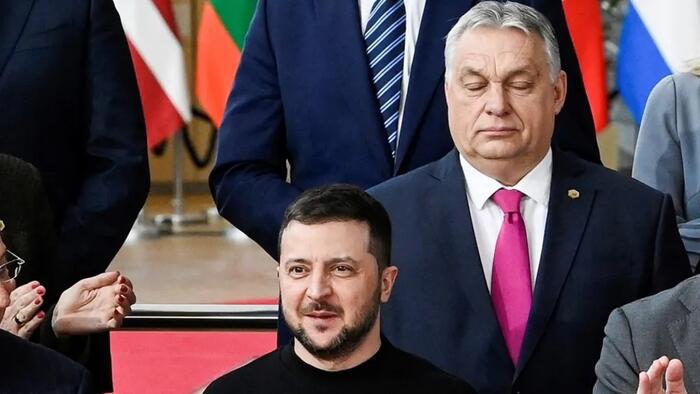Hungarian Prime Minister Viktor Orbán’s office has issued a strong condemnation of Ukrainian President Volodymyr Zelensky’s recently presented “victory plan” during a meeting of European Union leaders. Orbán’s political director criticized the proposal, suggesting that if executed, it would be a critical step toward provoking World War III. The official statement emphasized the need for the EU to pursue negotiations and peace instead of escalating the conflict. Orbán took to social media to voice his concerns before Zelensky’s presentation, calling the outlined plan “more than frightening” and firmly rejecting it as a pathway to conflict escalation.
In his statements, Orbán emphasized the consequences of Zelensky’s “victory plan,” stating that it represents the shortest route to a larger conflict rather than a sustainable solution. He urged the EU to reevaluate its current strategy regarding the war, which he characterized as poorly organized and executed, placing the main blame on the European Commission’s leadership, specifically Ursula von der Leyen. This criticism reflects a broader dissatisfaction within Hungary regarding the EU’s approach to the ongoing war, with Orbán asserting that the current tactics are counterproductive and not leading to victory.
Moreover, Orbán highlighted the reality that the EU is “losing this war,” suggesting that the current strategies are ineffective. He argued for a transition from a war-focused strategy to one centered on peace and diplomacy. Orbán echoed calls for a cease-fire and negotiations, framing these as necessary steps to stabilize the situation in Europe and to avoid further military escalation. His proposals indicate a desire for Hungary to take on a mediating role, advocating for dialogue rather than continued conflict.
The Prime Minister has also expressed plans to reach out to prominent European leaders, including German Chancellor Olaf Scholz and French President Emmanuel Macron, to rally support for initiating negotiations with Moscow. This initiative underscores Hungary’s commitment to finding a diplomatic resolution to the ongoing discord, highlighting Orbán’s belief that immediate discussions could provide a way out of the current impasse. By positioning Hungary as an advocate for peace, he aims to influence broader EU strategies regarding the war.
Supporting Orbán’s stance, Hungary’s Defense Minister Kristóf Szalay-Bobrovniczky reiterated the country’s position on the need for a cease-fire and peace talks. He denounced Zelensky’s victory plan, arguing that it would only lead to further disruption rather than constructive outcomes. Szalay-Bobrovniczky has emphasized Hungary’s aspirations for a stable and prosperous Ukraine as a neighboring country, advocating that a viable peace strategy is essential for truly ending the war and ensuring regional stability.
In light of these developments, Orbán’s administration stands out among European leaders for its explicit call for de-escalation and diplomatic engagement. As European support and military aid to Ukraine continue, Hungary’s insistence on negotiations and peace talks reflects a distinct approach that prioritizes stability and long-term peace over continued military conflict. With winter approaching and energy supplies becoming a pressing concern, Orbán’s government appears to be gearing up to play a more significant role in advocating for peace and practical resolutions amid a complex geopolitical landscape.

